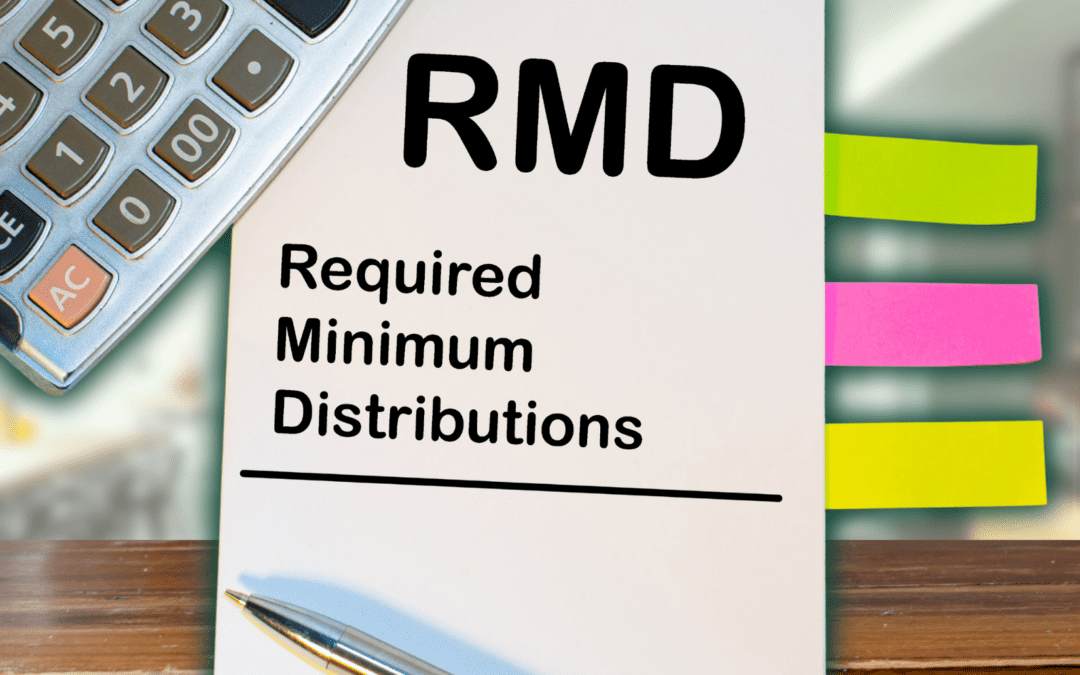Reviewing your Required Minimum Distribution (RMD) is an important task, especially if you have retirement accounts like a Traditional IRA or a 401(k). Failing to take the correct RMD amount can result in penalties. Here are some issues to consider when reviewing your RMD: (answer yes or no) and feel free to contact us with any questions you may have.
Is your RMD more than what you need for living expenses? (y/n)
If so, consider transferring your RMD to a non-qualified account for re-investment rather than sitting idly in cash (unless your emergency fund needs replenishing).
If you have other retirement accounts subject to RMDs, do you need to verify that those RMDs will be satisfied? (y/n)
If you have multiple individual retirement accounts (IRAs), you must calculate the appropriate RMD for each one. The total amount can be taken from one or more IRAs to satisfy the distribution—as long as the total RMD amount is withdrawn.1
Is the value of your qualified account significantly up or down due to current market conditions? (y/n)
If so, consider accelerating withdrawals (e.g., taking RMD early, taking RMD in a larger lump sum, etc.) to lock in gains, or spreading out (or delaying) withdrawals to potentially mitigate selling assets at lower share prices.
Is this an account you have inherited? (y/n)
If so, be mindful of the unique RMD rules that may apply as a result of the SECURE Act, such as the 10-year rule, which requires non-eligible designated beneficiaries to have the entire balance of the account withdrawn in 10 years following the death of the account owner.
Are you eligible for any exceptions (e.g., you are still working and contributing to the employer-sponsored account, this is the first year you are subject to an RMD, etc.)? (y/n)
If so, consider some of the planning options that may allow you to mitigate or postpone your RMD.
Do you need to review your tax withholding to ensure that it is still accurate? (y/n)
It is wise to review your withholdings now to avoid a potential surprise when you file next year.
Do you plan to make any Roth conversions during this tax year? (y/n)
If so, consider earmarking your RMD as a method of withholding taxes (even up to 100%) to help fund the tax liability incurred by the Roth conversion, but be mindful that your RMD must be taken before any Roth conversions can occur.
Have you recognized large amounts of taxable portfolio income (e.g., capital gains, dividends, interest, etc.) during this tax year? (y/n)
If so, consider earmarking your RMD as a method of withholding taxes (even up to 100%) to supplement any missed and/or inadequate quarterly tax payments and to avoid under-payment penalties.
Are you currently 70.5 or older and planning to give to charity this tax year? (y/n)
If so, consider making a Qualified Charitable Deduction (QCD) as a tax-efficient way to donate. Remember that QCDs do not affect your AGI, which may complement other areas of your tax planning goals. Be mindful of the requirements surrounding QCDs (e.g., $105,000 limit in 2024, must be a qualified charity, etc.).
Taking these considerations into account can help you effectively manage your RMDs and avoid costly mistakes. Your financial peace of mind matters to us. If you have any questions or concerns about Required Minimum Distributions (RMDs) or need guidance on managing your retirement accounts, we’re here to help.
Talk with one of the account managers at MoneyLetter’s sister company Asset Strategy about your specific situation.
© fpPathfinder.com. Licensed for the sole use of MoneyLetter and Asset Strategy. All rights reserved. Used with permission. Updated 12/01/2023.

